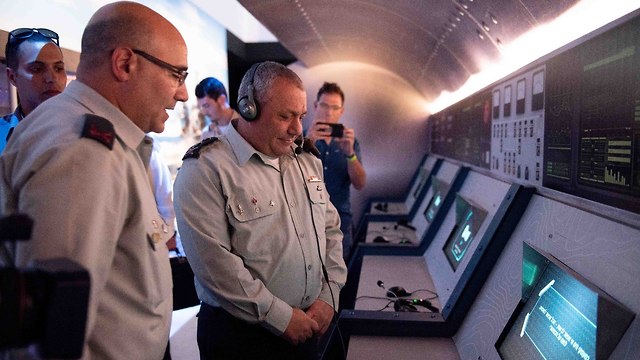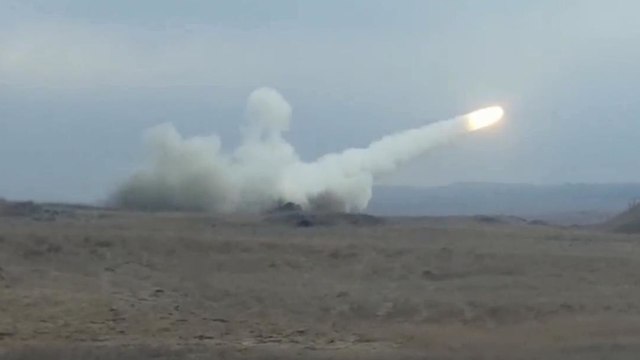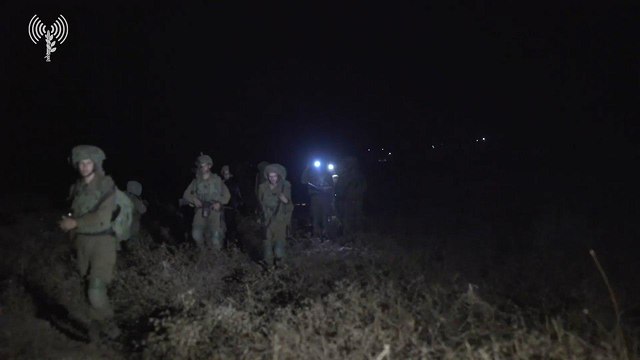
Chief of staff
צילום: עמית שעל
Senior IDF official says war readiness not sufficiently reviewed
Letter sent a year ago by unidentified high-ranking officer to IDF Ombudsman's unit says army's deficiencies are not checked frequently or thoroughly; 'What good is readiness in peacetime if there is not absolute readiness for emergency and war?'
The IDF ombudsman Maj. Gen. (res.) Yitzhak Brick has come under criticism by a senior officer who served in his unit in a letter that was sent last summer which slams the failure to conduct comprehensive and frequent inspections of the army’s level of preparedness and readiness for war.
The officer, a colonel who served in reserves in the IDF’s Ombudsman’s unit for Deputy Chief of Staff Maj. Gen. Aviv Kochavi, exposed what he said were a series of defective priorities in the methods used for internal critique in the army.
The deficiencies, he argued, could harm the essential critique mechanisms for building forces and the IDF’s success in wars.
The letter, which was written in July last year, has only now been publicized but has taken on a new significance in recent days due to IDF inspection bodies, headed by Brick, which are at the center of a public outcry about the level of preparedness of the IDF land forces or ground maneuvers for potential wars in Gaza and Lebanon.
The main dispute in focused on a 250-page report that was presented recently by Brick to the Knesset Foreign Affairs and Defense Committee and to Defense Minister Avigdor Lieberman in which he raised a string of concerns about 15 subjects which sketch an overall picture of shortfalls, deficiencies and a lacking level of preparedness of ground forces for war.
The IDF rejected the report and claimed that Brick lacked the tools to measure the fighting units’ level of preparedness.
It said that a large proportion of its conclusions were taken from random conversations with various officers and which therefore do not reflect the conclusions which were signed off by Chief of Staff Gadi Eisenkot and his superiors, namely that the IDF hasn't been as ready and prepared for war as it is today since 1967.
Some of Brick’s conclusions were also based on documents from an internal IDF comptroller report which also expressed different opinions.
For example, on the one hand, four months ago the security apparatus ombudsman, Hagai Tenenbaum-Erez, criticized Eisenkot’s decision to appoint the IDF Ombudsmen, Brig. Gen. Ilan Harari (res.) and Maj. Gen. Avi Mizrahi—who are thought to be close associates to the military chief—to examine the claims in Brick’s report.
On the other hand, Harari himself backed Eisenkot’s position that the army is at a high level of readiness for war as reflected in the inspection work under his command, and that his reports are monitored continuously, and are also sent to all the officials, including the defense minister and members of the Foreign Affairs and Defense Committee.
In the letter that was sent by the colonel a year ago to senior IDF officials, he pointed out that the work procedures of the IDF comptroller are defective and that the bulk of inspections focus on the ground forces and much less on air and naval units.
According to the colonel, who after completing his role in the IDF Ombudsman’s unit continued to serve in another role in intelligence where he rose through the ranks, “The priorities of the IDF Comptroller are flawed.”
“There is a priority for examining the efficiency of a number of subjects instead of the readiness for emergencies and for war. The issue of readiness and preparedness is in need of more scrutiny, as was the failure of readiness on the eve of the Yom Kippur War and before the Second Lebanon War. What is readiness in peacetime worth to us in the army if there is not absolute readiness for emergency and war?” he asked in the letter.
‘There has been no examination of readiness since 2012’
The senior officer who wrote the letter, whose details remain confidential, also asked: “What is the need for an efficient army in peacetime if during emergencies and war it turns out that the monitoring did not uncover the flaws, deficiencies and risks to the IDF’s standing in its missions?
“The internal IDF Ombudsman does not carry out an examination of the of the units’ readiness, including the ground forces, and he carries out analyses of an array of subjects such as drafting Haredim, food, patrol vehicles and training of officers, over which other commands have authority, responsibility and they are obligated to carry out the checks,” he continued.
“The ombudsman has not carried out checks into the readiness of units in the last month, year, two years or since January 2012, claiming that other female commanders whose job is to carry out the checks on the readiness of the forces for emergencies and war,” the letter continued.
“The majority of the rapid reviews by the chief of staff (three per year), which technically were carried out with the aid of the IDF Ombudsman’s unit, dealt with readiness but these were part of the chief of staff’s inspections. Either way, a few hours' inspection is not an inspection of readiness, but a sample check,” the letter argued.
Appended to the letter were tables containing facts and figures proving his assertions, while adding that he was “trembling” as he composed the missive, and explained the difference between criticism and critique.
“The ombudsman cannot rely on the various units in the branches and wings to perform an effective critique about the war readiness of the forces because they do not have the resources to examine hundreds of fighting frameworks,” the colonel wrote.
“The issue is too critical and constitutes the heart of the risk taken by the IDF. Therefore, it is neither professional nor proper that the internal ombudsman relies on other inspections. The claim by the ombudsman that says he does not carry out inspections in the place where reviews are already carried out does not hold water. The failure to carry out reviews of the readiness of the units in the air and sea forces is simply a fault,” he added.
The IDF rebuffed the officer’s claims out of hand, noting that many discussions in the IDF’s Ombudsman’s unit are held with other units on the subjects of readiness and preparedness of the forces, and that the selected issues for scrutiny by the IDF ombudsman are varied and go to the heart of operational activity in war.
Thus, for example, issues that have been discussed in recent years have touched on the precise missile threat to Israel, the protection of the country's skies, submarines, and other matters that do not necessarily concern ground forces directly. The IDF ombudsman, it was explained, even recently presented to the Foreign Affairs and Defense Committee 30 reports that were compiled over the last few years on matters that were not related to the ground forces and that the chief of staff personally joined the surprise inspection by the chiefs of the Northern and Southern General Staff at least twice a year.
The army explained that due to instructions from the IDF ombudsman, the ground forces carried out in the last year eight reviews of its readiness. The conclusions were also presented to the Foreign Affairs and Defense Committee.
The IDF also dismissed the claims that the IDF ombudsman, Harari, is considered to be a close associate of Eisenkot and emphasized that the two only served together up until the rank of company commander in the Golani Brigade in the 80s. In any event, it was Eisenkot’s predecessor who appointed Harari.
The IDF Spokesperson’s Unit issued a statement in response. “The IDF has an extensive system of review in all units, as well as through an IDF ombudsman. In the last few years the IDF has carried out inspections of the preparedness, which regularly visit all army units and provide a document to military commanders,” the statement read.
“Furthermore, the IDF is subject to external criticism by the State Comptroller and the IDF is open to and welcomes any criticism carried out by the official bodies and in a professional manner,” it concluded.














